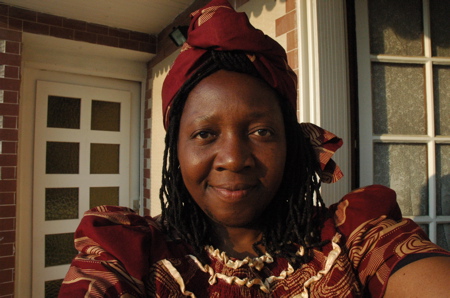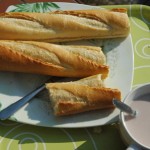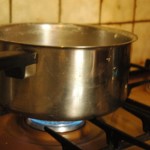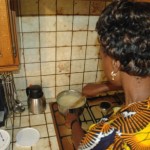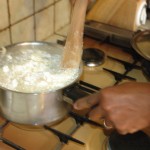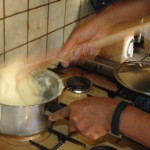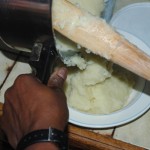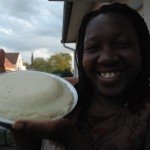20
May
Hope you have enjoyed this week’s stories of my adventures in Europe.
I offer you today double stories of Fufu and Jewish adventures, since tomorrow is my day of rest. Look forward to the next tales starting on Sunday; among them, the dos and don’ts of dating in Luba culture.
If you are wondering what I’m doing in France, check out my website,
http://kabuikakamunga.com
Have a great weekend!
Kabuika
Bruxelles _
I am in the European Union capital for a few days. My business meeting is over and first things first, I need to find a shul (synagogue in Yiddish) for Shabbat service. There is a Conservative shul I found online, but it’s clear across town and I don’t feel like schlepping all the way there.
It’s Friday afternoon, Shabbat is starting in a few hours and I’m desperate. A friend suggests that I simply go out and ask any Jewish person that passes by. Dressed in my Congolese business outfit, I do just that. I am in luck. I see a man wearing a kippah and speaking in English to his son who has little curls on the sides of his face. Orthodox Jews! Perfect.
I approach him and ask if there is a shul in the neighborhood. He looks at me warily and sends me two doors down. When I knock at the door, a young woman answers.
“Do you know of any shul in the neighborhood?” I ask her.
She looks at me with suspicion and gives me an email address to find shuls in Belgium.
“Lady! It’s less than an hour before Shabbat,” I say. “Do you think anyone will read their emails before Shabbat?”
She realizes then that maybe this black woman standing before her is Jewish. So she gives me an address: “109 …”
I decide to go and check it out just in case it’s a phony address. When I get to the place, it looks like a house. There is no sign. No name. Just the number 109. A man who looks like a bouncer intercepts me even before I knock at the door.
“Is this a shul?” I ask him.
“What is your business here?” He demands.
“I want to attend Shabbat service tomorrow morning.”
“Why?”
“What’s the matter? Don’t I look Jewish to you?” I ask him, pointing to myself.
He looks at my African outfit and shrugs. I realize he’s simply doing his job; I tell him yes, I am Jewish _ from Chicago.
“From Chicago?” He asks me to wait. An orthodox man, wearing a black hat, comes out and introduces himself as being from Brooklyn, New York. “Which shul do you go to in Chicago?”
I tell him and answer all his other questions. He invites me to the Shabbat service; I must have passed the test.
The next morning, I walk to shul and find a lovely community of people from all over the world: France, Finland, Belgium, Germany, England, Slovakia… And the man from New York is the rabbi. A cute little girl comes up to me and asks why I am brown. I smile and tell her it’s because I like to hang out in the sun (my ancestors too for that matter). Praying together, there are Ultra Orthodox, Modern Orthodox, and Jews who can barely read Hebrew. As a Conservative Jew, I fit perfectly in the middle.
The people I saw yesterday, all come up to me and apologize for being so guarded. There had been some attacks on synagogues in the city. That’s why the shul looks like a house.
I am invited to the Kiddush afterwards. We sit outside in the backyard, with children, running all over the lawn. We eat and talk for hours; it feels like an afternoon spent with family and friends.
I look forward to praying in that community again the next time I am in Bruxelles, whether or not I am wearing a Congolese outfit.
20
May
In Paris, my day begins with a baguette. Yes, I eat an entire baguette. I’m hungry!
Lunch varies, depending on whether I am traveling on the metro, sightseeing or just furiously writing in the sun; it could just be a bar of chocolate.
The evening meal is typically Congolese: smoked fish slowly cooked outside on a grill, Pondu (or Kaleji in Tshiluba), which is basically cassava leaves cooked in tomato sauce, roasted caterpillars, etc. The meal would not be complete, however, without fufu.
What is fufu? you ask.
It is hot dough, made with hot water and a variety of flour. In Paris, my cousin Mbuyi makes fufu with semolina flour. Other people make fufu with cassava flour, plantain flour or even potato flour.
Fufu is your carb, your starch. It is the base of the meal; the vegetables and the meat or fish are there to accompany fufu (not the other way around).
If you ask any Luba elders, including my Dad who lives in Montreal… “have you eaten?”
They will tell you, “Today I have not eaten,” if they did not eat fufu that day.
Yours truly here must admit that, although fufu is an acquired taste, you sure can get hooked on it. Fufu is life.

